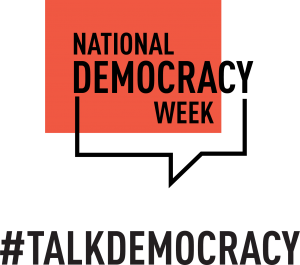 The last in our series of articles for National Democracy Week 2018. Marc Denervaux looks at the complex moral issues democracy and rights. For more articles about Democracy and Children see our campaign with The Phoenix Education Trust here. We’ll be publishing new articles every day this week, so keep a look out for more takes on this important topic.
The last in our series of articles for National Democracy Week 2018. Marc Denervaux looks at the complex moral issues democracy and rights. For more articles about Democracy and Children see our campaign with The Phoenix Education Trust here. We’ll be publishing new articles every day this week, so keep a look out for more takes on this important topic.
The people has always seemed to set limits on itself as to what extent it may conduct its affairs democratically. The Athenian democracy would not admit women or slaves. The great liberals of the eighteenth century would not countenance the idea that important decisions about the affairs of the State could be made by the non-property owning masses. Women were first offered a say in New Zealand in 1893. One of the last nations to concede the vote to its female population was Switzerland in 1971.
Today, every country wants to boast its democratic credentials whether in name such as the GDR, the PDRK or the DRC, or in rhetoric such as the US (especially in the midst of an incursion into another sovereign state). The notion of what constitutes a democracy seems to have a lot to do with how we define the participants and their mode of participation. As far as nation states are concerned, most would still exclude prisoners (the UK, at least), ‘foreigners’ and inevitably, children. The disenfranchisement of people who have broken the law has elicited debate not long ago and the fact that recent migrants may have a major stake in some decisions is irrelevant to those jealous of their own national status. But what seems rarely, if ever, up for discussion is the entitlement of children to be involved in making those decisions.
Perhaps much of this stems from the fact that most people’s image of a child is of the apparent chaos of the primary school playground. The fact that some children are sent to war or to work in factories is inconvenient because they do not want to ascribe roles to them which conflict with the infantilised image we attach to the word ‘child’. Not that this can be remedied merely by bringing down the voting age a couple of years. It is very hard to draw a clear line anywhere without having to deny at least some ‘competent’ citizens. After all, we could probably bring to mind a twelve-year-old who is every bit as responsible as a forty-year-old we have met.
If our solemn principles must be shot through with compromise for practical reasons, why have we decided that children are a more reasonable exclusion than, say, those who fail an examination in advance of the ballot? Ultimately, these principles of inclusion can be debated at length and in detail, and we can convince ourselves that we have the best of all possible worlds but when one considers how many exclude themselves, it brings the debate into a new moral terrain; the responsibility of voting.
On the one hand, people will insist you undermine your entitlement to protest if you do not exercise your right to vote against it. Naturally, on the other hand, people will retort there is no way of voting against it so why exercise it all? If you are not offered a genuine choice why should you want to participate? Let us face it, participation is voting for in such circumstances, so those who feel like spoiling the ballot fail to appreciate that the (UK) State counts the voter turn-out but does not publish the number of deliberately spoilt ballots. In other words, it registers participation and conceals dissent. A country like Australia may well make voting compulsory but this would be a paradoxical form of democracy if there were no “none of the above” box on the ballot paper.
On the other end of the spectrum from alienation is complacency. The theoretical physicist Michio Kaku registered outrage when an interviewer suggested that logistically, with increased technological means at our disposal, more decision making could be undertaken through the internet. He refused to accept that this would result in anything but chaos and that the four-year term by representation was a happy medium. “People are fickle … sometimes the popular decision is the incorrect one … we remember our leaders who are visionary precisely because they ignore the day-to-day … feelings of the people around them.” On one level, Kaku makes a sound objection as passing a multitude of decisions by ratification where people vote ‘yes’ or ‘no’ might seem uncoordinated but the real objection must surely be that people are not involved in the formation of those decisions. That is, left in the hands of ‘experts’ who are supposed to have much more responsibility than the fickle masses, we are exercising a very limited form of democracy. Clearly, voter numbers (in the UK) today show much of the population does not feel represented at all. Direct involvement in the development of propositions as well as their ratification gives citizens a proper stake in how things are run and can quite easily be coordinated by interest groups that have a proportionate influence, rather than the monstrous lobbying weight of a trans-national corporation. Representation is seen as a rational alternative to the anarchy of direct democracy which puts a selection of the decision making in the hands of a responsible elite rather than an ignorant mob.
Mainstream school councils teach this form of democracy very well. Students learn that they are allowed a narrow choice of candidates (who fit the right image), learn that they can choose from a narrow range of issues and ultimately, learn that they can expect very little from these governing bodies. This prepares them well for the disappointment of mainstream parliamentary democracy as they will be granted little more meaningful than that offered by the head boy who campaigns to be allowed to wear longer hair. It is an excellent model of how things are run outside of school, right down to the opaque and totalitarian school management taking the same role that the WTO, the IMF, the Federal Reserve, etc. take in determining national government legislations. If a school were to experiment with a system that encouraged all students, whatever their age, to engage in free and open discussions and to collaborate with all staff in forming decisions (whether legislative, executive or judiciary) and allowing their vote the same weighting as any staff member, there is no telling what children may learn from the experience.
